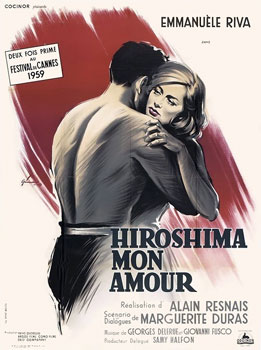 |
| Yvonne Furneaux, Eleanora Rossi Drago, Anna Maria Pancani, and Valentina Cortese in Le Amiche |
Lorenzo: Gabriele Ferzetti
Cesare Pedoni: Franco Fabrizi
Nene: Valentina Cortese
Momina: Yvonne Furneaux
Rosetta: Madeleine Fischer
Mariella: Anna Maria Pancani
Tony: Luciano Volpato
Clelia's Employer: Maria Gambarelli
Carlo: Ettore Mani
Director: Michelangelo Antonioni
Screenplay: Suso Cecchi D'Amico, Michelangelo Antonioni, Alba De Cespedes
Based on a novel by Cesare Pavese
Cinematography: Gianni Di Venanzo
Production design: Gianni Polidori
Film editing: Eraldo Da Roma
Music: Giovanni Fusco
The usual rap on Michelangelo Antonioni's films by those who dislike them is that nothing happens, when in fact all sorts of things happen, from mysterious disappearances to murder. What sets Antonioni's films apart is that things happen almost randomly, without the usual dramatic buildup, and that the way his characters react to the things they witness or that happen to them is not usually the way we would react to them. So Le Amiche starts with an attempted suicide to which the sophisticated women who form the circle of "girlfriends" of the film's title react with a kind of detachment and indifference, even though the woman who tried (perhaps not very hard) to kill herself was one of them. Even Clelia, the outsider who will soon become part of the little circle and who discovers the unconscious Rosetta, seems to take the occurrence in her stride. The next on the scene is the brittle, cynical Momina, who knows Rosetta and accepts her suicide attempt as something like a part of the routine. And so we, along with Clelia, are thrust into a group of people in whom something essential seems to have atrophied, producing several fractured marriages and dead-end affairs. Clelia has come to Turin, the city where she grew up, to supervise the opening of a dress shop, part of a chain headed by the designer for whom she works. So it's the world of fashion superimposed on a place Clelia knew in the immediate postwar years as a grimy working-class city, and her point of view on the lives of the girlfriends is a special one. Partly in reaction against these wealthy women and their ineffectual men, Clelia takes up with Carlo, a supervisor on the construction of the shop, who shares her lower-class roots in the city. But you can't, as they say, go home again. The film is full of Antonioniesque touches that anticipate his major works of the 1960s. There's a visit to the beach where the behavior of the girlfriends and their men evokes some of the behavior that precedes the disappearance of Anna in L'Avventura (1960), and there's a breathtaking cut from the suicidal Rosetta walking away into the darkness to a high-angle shot of her white-shrouded body on the pier after she succeeds in killing herself. Antonioni antagonists will find nothing in Le Amiche to counter their charges of "arty ennui," but those of us who appreciate his work, even if we have to struggle sometimes, think this earlier film is almost the equal of his later work.

